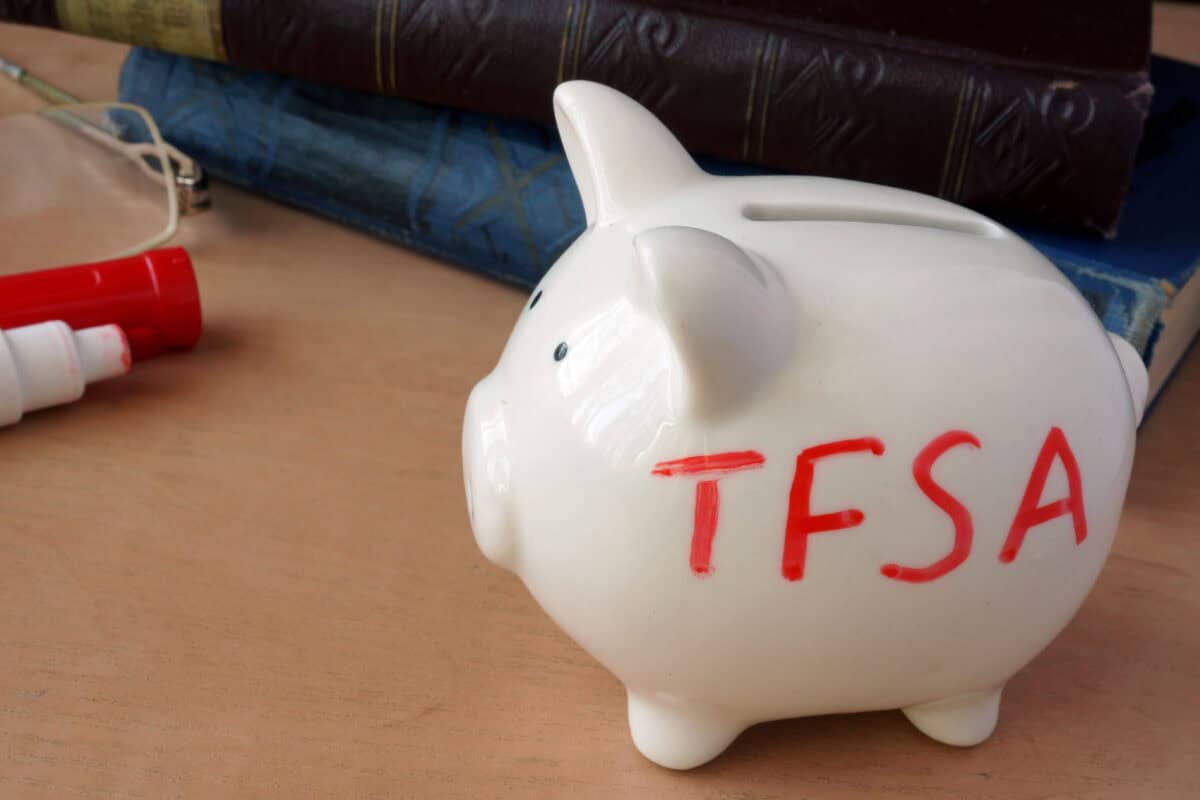Tax-Free Savings Account (TFSA) users welcome the yearly expansion of their contribution limits. The government announced $500 increases in 2023 (to $6,500) and 2024 (to $7,000) to compensate for high inflation. For next year, the limit will stay at $7,000. However, for anyone eligible to open a TFSA since 2009, the total or cumulative contribution room on January 1, 2025, is $102,000.
The TFSA came after the Registered Retirement Savings Plan (RRSP) and is Canadians’ second effective retirement savings tool today. While TFSA contributions are not tax-deductible, all earnings from qualified investments inside the account are tax-exempt. Moreover, there is zero tax on withdrawals.
Most users prefer to hold dividend stocks because of higher earnings potential. If you plan to maximize your available contribution room in 2025 to include unused contributions, Bank of Nova Scotia (TSX:BNS) and South Bow Corporation (TSX:SOBO) are profitable choices.
Big bank
BNS is a no-brainer choice for income-focused investors due to its impressive dividend track record. The $95.95 billion bank has been paying dividends for 192 years or since 1832. At $77.80 per share, the stock is up 28.52% year to date. Furthermore, investors feast on the 5.31%, the highest yield among the big banks.
According to its president and chief executive officer (CEO), Scott Thomson, 2024 was a foundational year for Canada’s fourth-largest bank. “The bank delivered solid revenue growth and positive full-year operating leverage while redeploying capital to our priority markets across the North American corridor,” he said.
On December 3, 2024, BNS reported its fourth quarter (Q4) and full-year fiscal 2024 financial results. In the three months and 12 months ending October 31, 2024, net income increased 24.7% and 5.9% year over year to $1.7 billion and $7.9 billion, respectively. The International Banking segment had the highest earnings growth (11%).
Assuming you invest $7,000 in BNS, your money transforms into $92.93 tax-free quarterly income. A $102,000 position will earn $1,354.05 every three months. Given the projected 5-7% earnings growth in fiscal 2025, Thomson expects a modest dividend improvement.
Critical energy infrastructure business
South Bow is a newly formed entity following the spin-off of TC Energy’s liquids pipeline business. Since its first day of trading on the TSX in early October, the energy stock has risen 20.9% to $35.35 (as of December 4, 2024). On November 7, 2024, the board declared an inaugural quarterly dividend of $0.70, which is around 7.92% annually.
The $7.22 billion energy infrastructure company’s extensive liquids pipeline asset moves or supplies crude oil to U.S. refining markets and the U.S. Gulf Coast. Its president and CEO, Bevin Wirzba, said, “We are confident that as a standalone, publicly traded company, we will unlock significant value from our unrivalled market position.”
South Bow’s competitive advantages are strong business fundamentals and robust crude oil supply and demand. “We are focused on creating long-term value for our customers, communities, employees, and shareholders,” added Wirzba.
Tax-free investment power
Any additional TFSA contribution room is a game-changing milestone for Canadian savers. The yearly limits appear small but compounds because of the TFSA’s tax-free investment power.
 Stock Up Sale
Stock Up Sale








